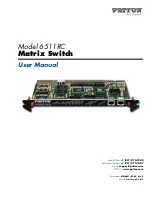
HA360BU – SONICBRIDGE™
/
LAMP
SWITCH
The HomeAware™ SonicBridge™ module HA360BU
allows traditional Sonic Alert receivers to work with the
new HomeAware™ D-RF Secure™ system. The
HomeAware™ is the only wireless system available
that is compatible with all Sonic Alert remote receivers
including the SA101, SA201, BL300, RH100 and
SB1000 alarm clock. It also has the added feature of
allowing a lamp to be plugged into it to allow for a
flashing lamp option. To install the SonicBridge™
follow the four steps below.
1. Simply plug the SonicBridge™ into any 120v outlet
(do not plug into extension cords, power strips or
surge protectors) must be plugged directly into the
outlet for the best receiver reception.
2. Plug the opposite end into the back of the
HomeAware™ Main unit where it says Lamp SW.
3. You are now connected to the home power line
which will allow the HomeAware™ to communicate
with your traditional Sonic Alert remote receivers.
4. If you would like to utilize the option of a flashing
lamp for your alerts simply plug any lamp into the
SonicBridge™ and turn the lamp switch to the on
position. Your lamp can now be turned on and off
through the HomeAware™ Main unit by pressing
the snooze button for on and off.
Important notes for lamp bulb type
Lamp light bulb must not exceed 300 watts. Also make
sure the lamp is in the on position and that the bulb is a
good bulb.
Bulb types to use in lamps are as follows;
Incandescent, LED, and instant on CFL type bulbs
must be used.
FCC Requirements
This device complies with part 15 of the FCC rules, and
with RSS-210 of Industry Canada. Operation is subject
to the following two conditions; (1) This device might
not cause harmful interference, and (2) this device
must accept any interference received, including
interference that may cause undesired operation.
Note: This equipment has been tested and found to
comply with the limits for a Class B digital device,
pursuant to part 15 of the FCC rules. These limits are
designed to provide responsible protect against harmful
interference in a residential installation. This
equipment generates, uses, and can radiate radio
frequency energy and, if not installed and used in
accordance with the instructions manual, may cause
harmful interference to radio communications.
However, there is no guarantee that interference will
not interfere in a particular installation. If this equipment
does cause harmful interference to radio or television
reception, which can be determined by turning the
equipment on and off, the user is encouraged to thy to
correct the interference by one or more of the following
measures:
i.
Reorient or relocate the receiving antenna.
ii. Increase the separation between the
equipment and receiver.
iii. Connect the equipment into an outlet on a
circuit different from that to which the receiver
is connected.
iv. Consult the dealer or and experienced radio/
TV technician for help
Modification not expressly approved by the
manufacturer could void the user’s authority to operate
the equipment under FCC rules




















